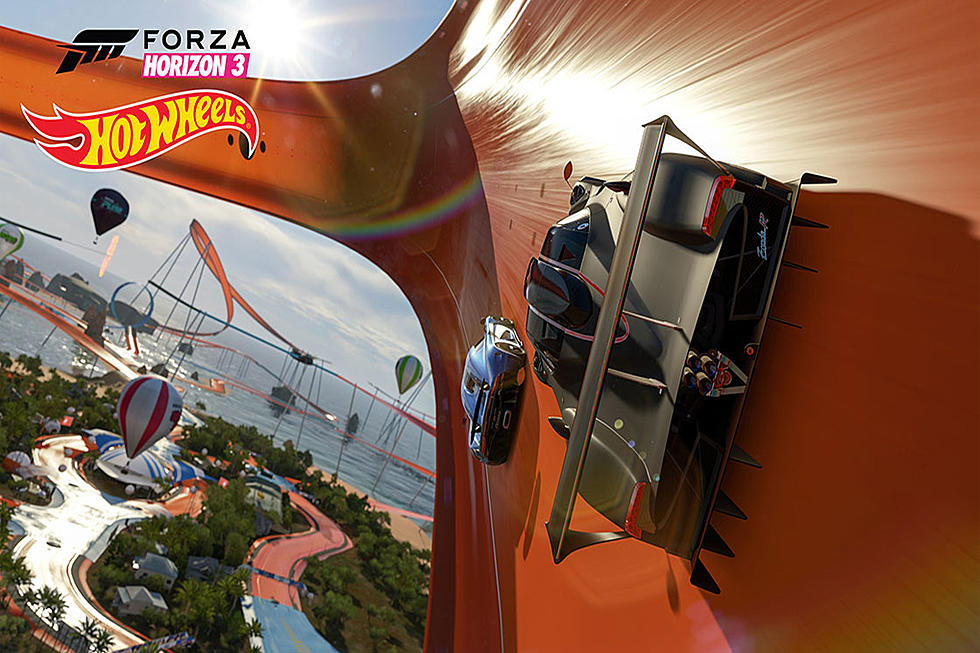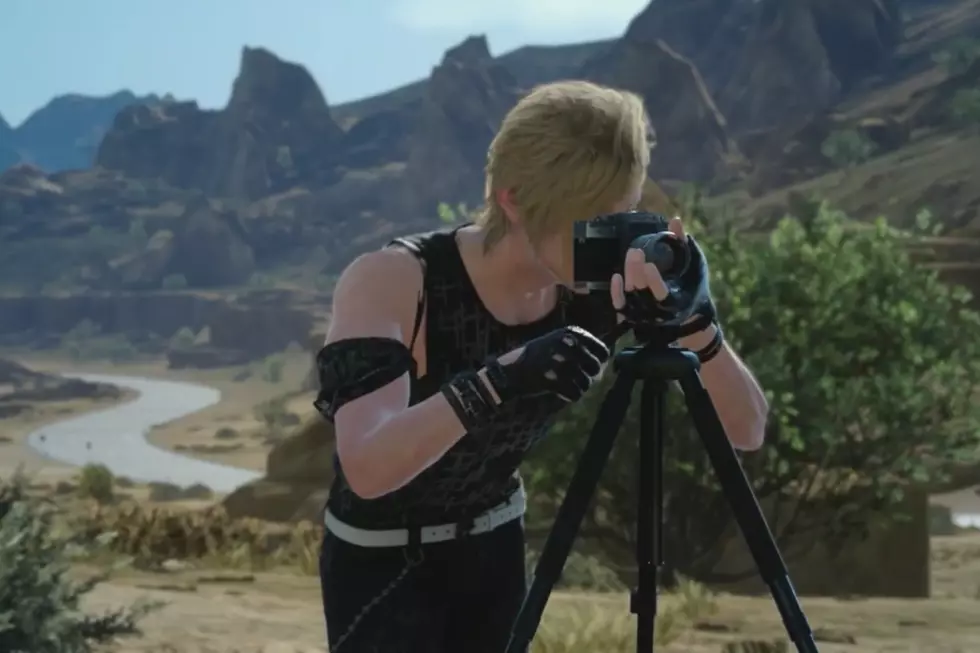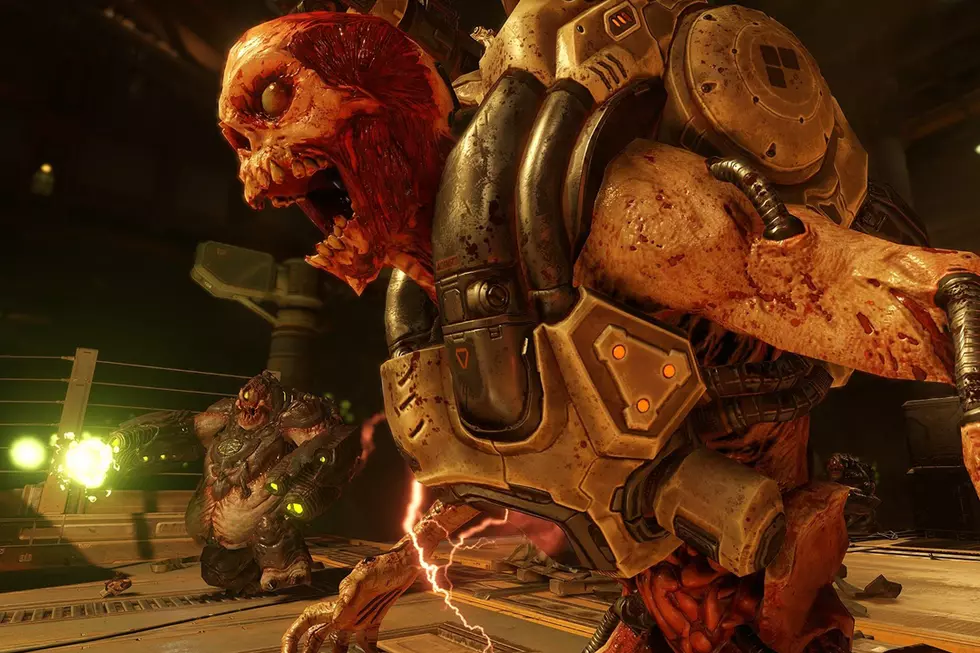
Video Game Reboots and Remakes: What (Not) to Do
Reboots and remakes have become dirty words around Hollywood; phrases to denote soulless cash-ins from bloated producers looking to mine a buck off of our collective nostalgia. The video game industry isn't immune to the lucrative lure of similar projects, which is why we've seen so many revivals of long-forgotten projects as of late. While Hollywood seems mostly content to regurgitate homogenized versions of our favorite franchises, video game remakes and reboots are a much more mixed bag. Some are resounding successes, tapping into what was great about the original while finding something new, and others are... well, not.
One of the biggest, most recent failures to reboot a video game franchise is Capcom's DmC: Devil May Cry, which sold decently enough, but far worse than its predecessor Devil May Cry 4. Despite being a hit with critics, DmC alienated the fanbase, resulting in a massive pile of negative Metacritic reviews from players. While the previous Devil May Cry titles saw protagonist Dante as a fun-loving, stylish ass-kicker who liked showing off and having a good time more than anything, DmC took the '90s approach and made its Dante (known as Donte by many fans, as in "We donte want this jerk, you can have him.”) a brooding, vulgarity-spewing sourpuss.
While DmC's combat had some fun to it, ultimately it was shallow compared to the brilliantly complex potential of previous Devil May Cry titles. Capcom tried its best to market the bajeezus out of DmC, but it failed because of its lack of respect to the franchise it was banking on, evident in both the simplified combat and utterly joyless hero. Not to mention that it goes to the trouble of including an in-joke mocking Devil May Cry's Dante, a joke that won't make sense to those unfamiliar with previous games, and that will likely irritate those who did enjoy them.
DmC: Devil May Cry isn't the only series to make the mistake of "going grimdark" to try to appease what its developers feel is a "more mature" (re: sophomoric and boring) fanbase. Bomberman: Act Zero took the fun, colorful world of Bomberman and turned it into a depressing, dystopic future that was more Running Man than Bomber Man (and got similarly depressing reviews to match). Bionic Commando, a silly, fun NES platformer which has you swinging around on a bionic arm and blowing up Hitler, returned starring a brooding, dreadlocked hero armed a mechanical arm that somehow housed the spirit of his dead wife. People weren’t particularly excited about this, either.
Nintendo is no stranger to facing resistance when trying to innovate their fan-favorite series like The Legend of Zelda, Super Mario 64, or Metroid. Metroid, in particular, saw a huge outcry from fans when it was first announced that Metroid Prime was going to be in first-person. "You're turning it into a generic first-person shooter!" cried some fans. "It's going to be corridor after corridor of brainless enemies!" cried others. But then Metroid Prime came out and wowed us all with its atmospheric level design, incredible music, and, menacing aliens.
Most of all, though, Metroid Prime's success comes from its adherence to the soul of the original games, games centered around giving the player a sense of exploring a lonely, dangerous world. Of course, Nintendo isn't without fault in the reboot/remake department, since it was also responsible for Metroid: Other M— the DmC of the Metroid series. Other M's gameplay was ping-ponged between being adequate and being frustrating. The most frustrating thing about Other M, however, was its story, which took solitary badass Samus Aran and turned her into a boot-licking girl subservient to the men around her, which is probably why it sold so poorly.
Fallout 3 dramatically reimagined the post-apocalyptic RPG by changing its turn-based combat into first-person shooter combat— a fact that didn't go un-bitched about by many fans. But then Fallout 3 arrived and- lo and behold!- it was freaking awesome. Sure, it's not perfect, but it's pretty dang close. It held strong to what was great about the Fallout series, with its branching choices, in-depth character customization, and rich, post-apocalyptic setting, and imbued them with some new life thanks to the revamped gameplay.
Sometimes developers try to create a souped-up version of a classic game, often with HD graphics to appeal to modern sensibilities. Ducktales is an example of doing this sort of thing right; Capcom went above and beyond the call of duty to give fans everything they didn't know they wanted out of this remake. It includes the same levels as the original NES classic, but with added extras like fully-voiced cutscenes with all of the Ducktales characters being reprised by their original actors— a feat all the more impressive when you consider that over twenty years had passed since the animated series, and that Scrooge McDuck's voice actor, Alan Young is approaching one hundred years old. Well done, Capcom.
On the other end of the spectrum we have Turtles in Time: ReShelled, a remake of the legendary beat 'em up Teenage Mutant Ninja Turtles IV: Turtles in Time. Though the game is, more or less the same as the original, everything feels off, like when you hang out with a friend you haven't seen in years only to realize that things have changed. TMNT: ReShelled's combat feel sluggish and unsatisfying, the 3D graphics offer no sort of aesthetic pleasure, and there aren't enough extras to justify this thing's existence. Somehow, Konami managed to remake one of their most beloved games and do it in a way that saw poor sales and, at best, mediocre reviews.
Every once in a while, developers take an uninspired, or forgotten, franchise and reboot it in a way that surpasses the original. Grand Theft Auto 1 and 2 are considered by many to be nothing special, but the awesomeness of Grand Theft Auto 3 lead to an entirely new genre of games— open world. Killer Instinct 1 and 2, while fun, were ultimately very flawed fighting games, but the new Killer Instinct is a fast, furious fighting experience that takes the genre in a new direction while fixing some issues that plague it; things like overly-long combos boring players, unbalanced casts of characters and fights that drag on for too long. T
he Shinobi series offered players challenging platforming action during the 8-bit and 16-bit eras. Its Playstation 2 iteration, the creatively-titled Shinobi, kicked the difficulty up to an insane degree- it's often considered one of the toughest video games ever made- while never veering too far away from what made those original ninja-platforming-action games rock so hard. The recent Tomb Raider refresh from 2013 still has players battling nature and raiding tombs, but with a decidedly more survival-horror flair to everything. Is it a gritty reboot? Yes. Does it take things too far and become a grimdark clone of itself? Never.
Time after time, when we see some remakes/reboots fail and others succeed, the reason why seems to be clear: it's all a matter of heart. Those remakes and reboots that innovate, but keep the heart of the original franchise in mind, succeed, like X-Com: Enemy Unknown, Prince of Persia, Metroid Prime, Killer Instinct and Fallout 3. Those games whose developers have lost sight of what made the originals so good in the first place, such as DmC: Devil May Cry, Splatterhouse, Metroid: Other M, Altered Beast, Golden Axe: Beast Rider, and Bomberman Zero, these games fail, and fail hard. Video games, movies, comic books, television shows... all mediums rich for exploring the human condition, but in order for them to best do so, these projects need to be crafted with a mindset of love and purpose, not with cynicism and exploiting nostalgia.
More From Arcade Sushi









